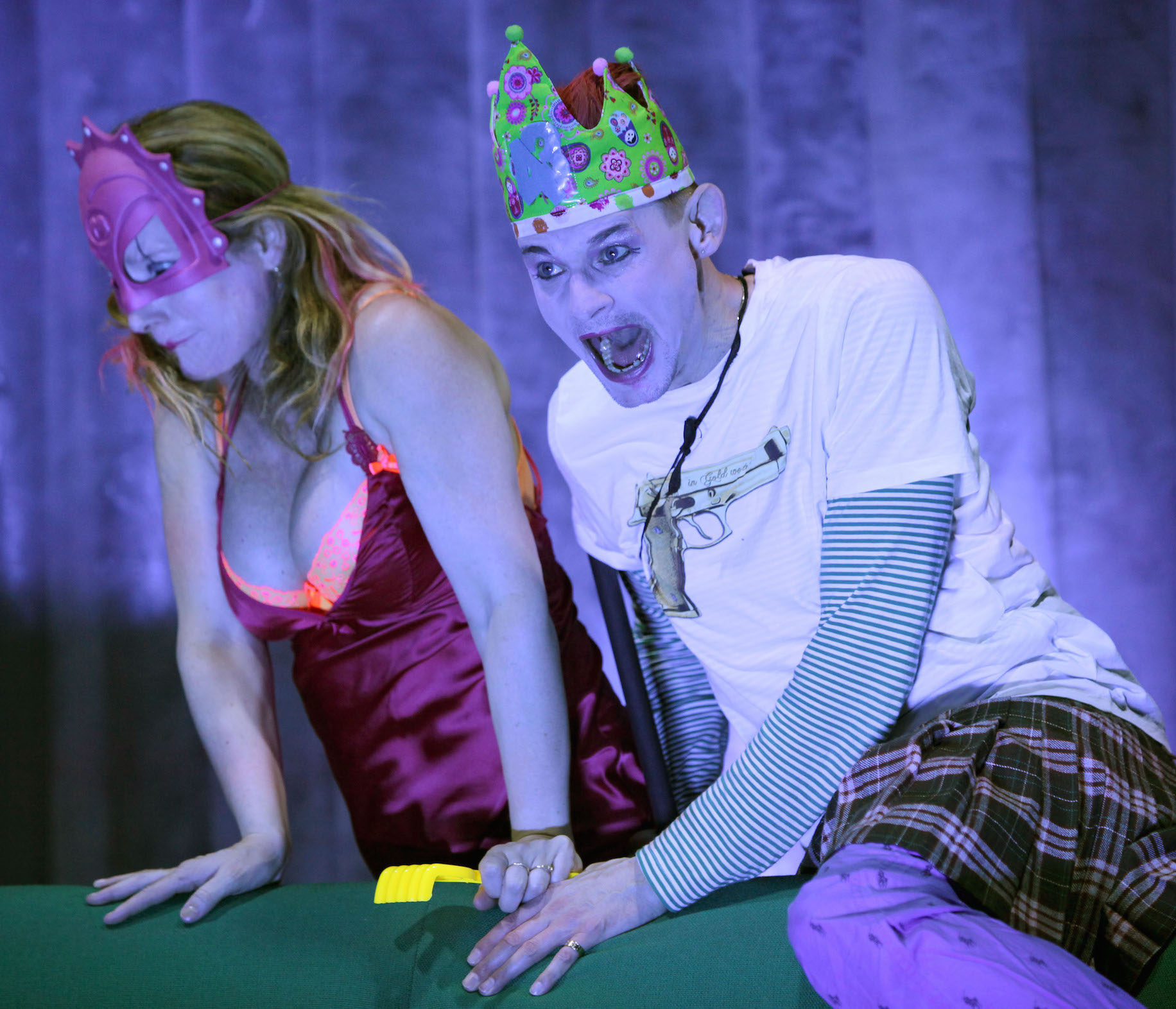This offering, part of the Big in Belgium collection of works at this year’s Edinburgh Fringe, collides Macbeth with the relationship between grunge superstar Kurt Cobain and his wife Courtney Love-Cobain, deconstructing the lives that these two sets of tragic figures play(ed) out.
Taking the rough form of a triptych the piece lurches between three differing formats. It opens as a late night (drug-fuelled) chat show between dissolute rock stars, shifts into a fast-forward puppet version of Macbeth, before landing in a strange domestic hinterland where the Macbeths/Cobains await their fate. Gillis Beisheuval and Manja Topper, as Macbeth/Kurt and Lady Macbeth/Courtney respectively, boldly embody this strange fusion of classical and contemporary tragic figures.
This, though, is an uneven show, with the first section struggling to cohere and feeling rather pleased with itself. It remains for the puppet version of the original text to provide an anchor point around which the other two sections orbit, acting as a fulcrum that begins to lever open the deconstructed worlds. The puppetry itself is anarchic and playful, if something of a uneven change in tone, playing fast and loose with fragments of Shakespeare’s original to amusing effect. Ending with the murder of Banquo (by Macbeth – his closest friend), the puppet section also provides the premise for the final part of the triptych – the (two) couples passive and otherworldly isolation as their world crashes down around them.
If you come at MacBain with a detailed understanding of Macbeth there are some interesting subtleties in the way the rock-star conceit shapes and shifts the motivations of the characters. Particularly in the way in which Macbeth loses his own agency, becoming a kind of puppet of both Lady Macbeth and the wyrd sisters. More interestingly it also reframes the consequences of the Macbeths’ murder of King Duncan and with it the ‘murder’ of sleep. Instead of the play’s usual quickening charge towards tragedy and the Macbeth’s come-uppance, MacBain conceives it as a slow and disorientating slide into insomnia and paranoia. Often overlooked in favour of more bombastic expressions of madness in more conventional stagings of the play, the choice to gradually erode the Macbeths’ sanity because of their lack of sleep lends this work its strongest feature. In contrast, what it has to say about the Cobain/Love partnership is less clear, and feels a rather loaded interpretation of the ultimate death of Cobain by his own hand. At the core of this is the role that empathy might play out in tragedy. The Macbeths are perhaps two of the least sympathetic of Shakespeare’s characters, and somehow placing Cobain/Love in this light diminishes the theatrical value of their tragedy.

